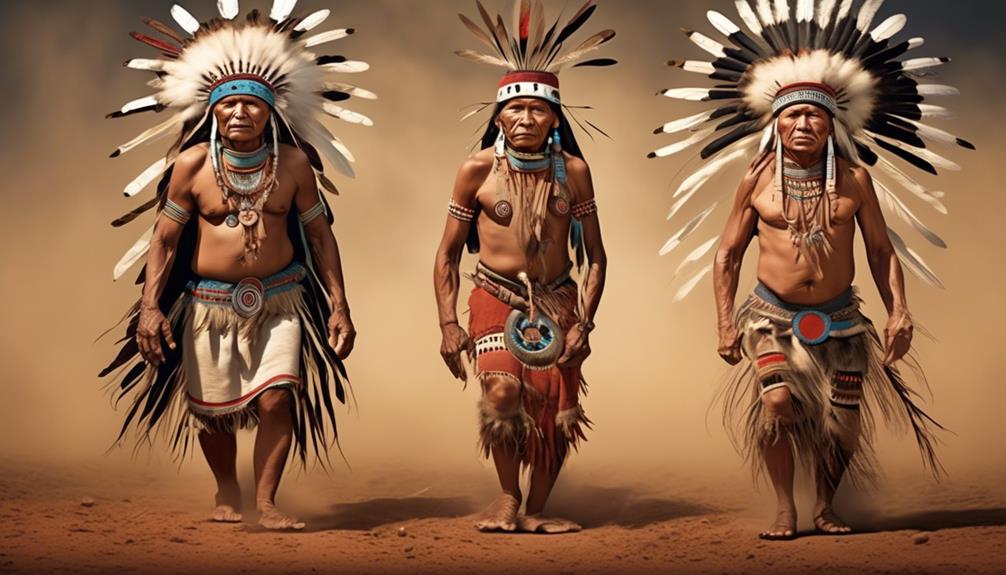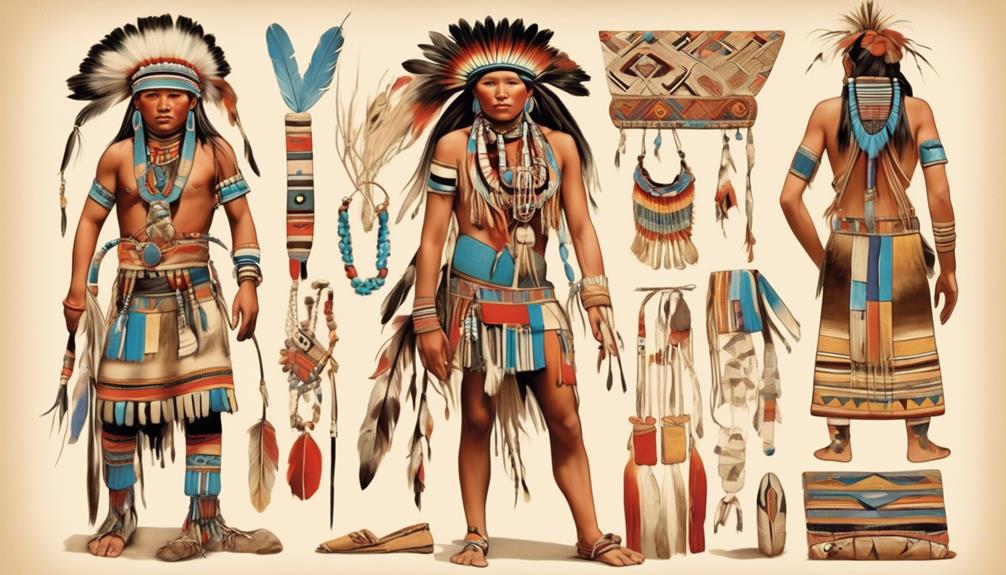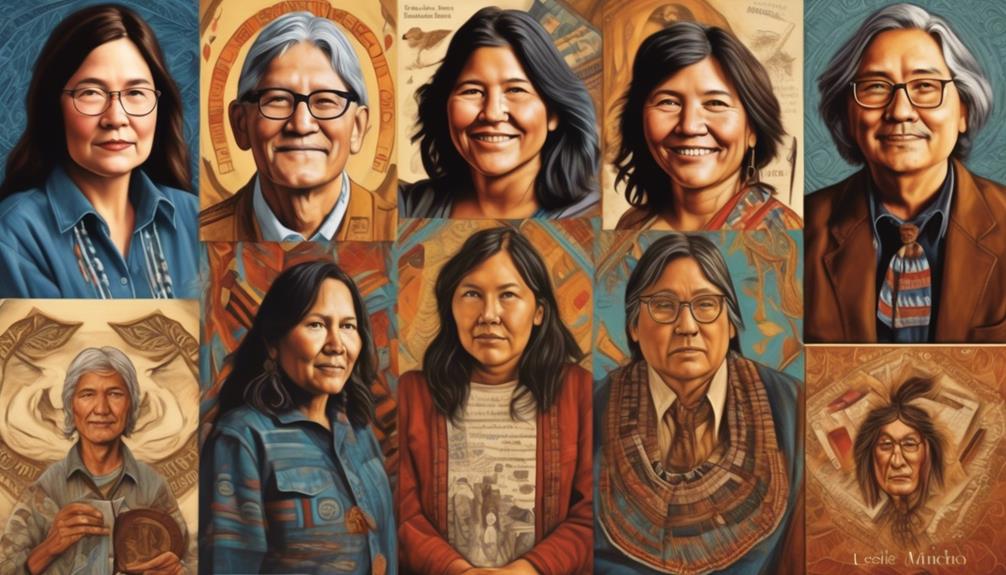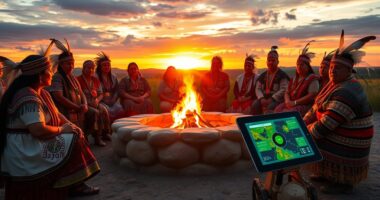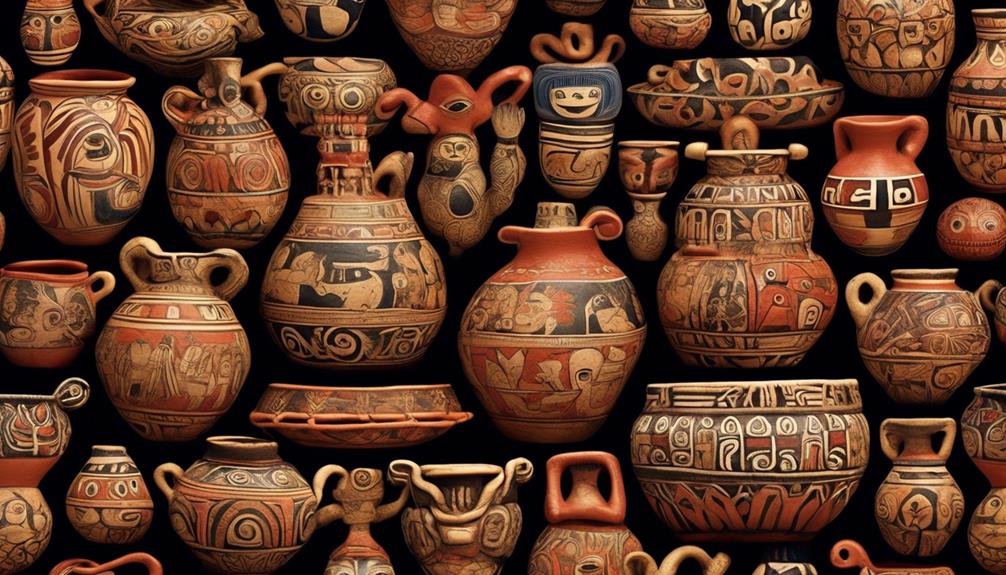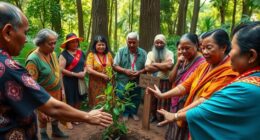Supporting Indigenous peoples is like learning a new language – it takes time, patience, and a willingness to see things from a different perspective. As we navigate through this journey, there are important steps we must take to truly support and uplift Indigenous communities.
From understanding the impact of colonial history to advocating for Indigenous rights, the path to allyship is multifaceted and requires ongoing dedication.
Join me as we explore the essential elements of being a genuine ally to Indigenous peoples, and discover the transformative power of solidarity in action.
Key Takeaways
- Understanding and acknowledging the lasting impact of colonialism on Indigenous peoples
- Actively listening to and learning from Indigenous voices and narratives
- Supporting Indigenous-led initiatives for economic empowerment and environmental stewardship
- Advocating for Indigenous rights through education, activism, and holding elected officials accountable
Understanding Colonial History
As we delve into the topic of understanding colonial history, it's crucial to recognize the lasting impact of colonialism on Indigenous peoples. The colonial impact on Indigenous communities has been profound and continues to shape their experiences today. In our quest for historical education, it's essential to acknowledge that the historical narrative has often been skewed to favor the colonizers' perspective, neglecting the voices and experiences of Indigenous peoples. This biased historical education has perpetuated harmful stereotypes, erasure of Indigenous cultures, and minimized the true extent of the devastation caused by colonialism.
To be allies to Indigenous peoples, we must actively seek out and amplify Indigenous voices and narratives, recognizing the resilience and strength of Indigenous communities in the face of centuries of colonial oppression. It's imperative to educate ourselves about the true history of colonialism and its ongoing effects, understanding that this knowledge is essential for creating a more just and equitable future.
Listening and Learning From Indigenous Voices
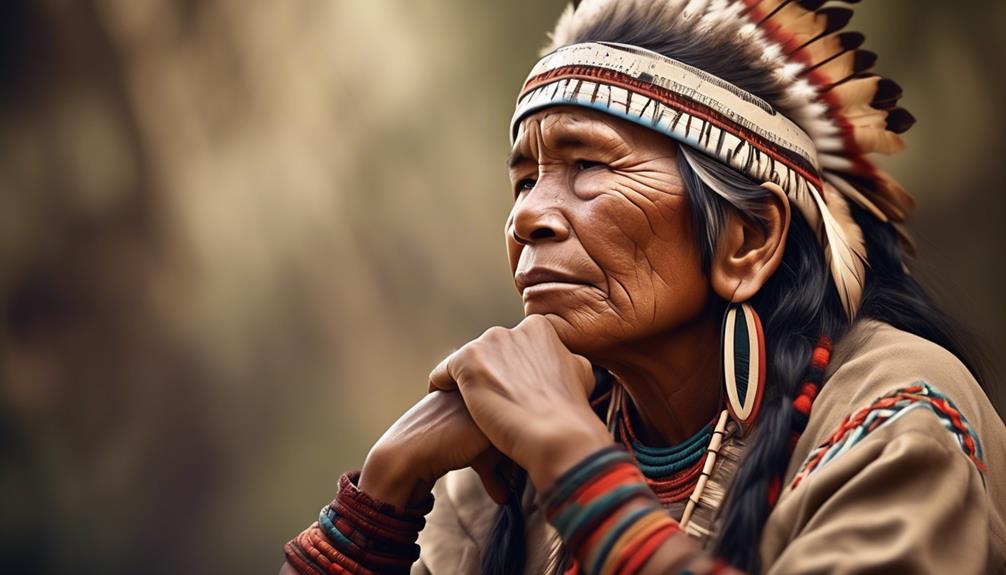
To truly understand the experiences and perspectives of Indigenous peoples, we must actively listen to and learn from their voices and narratives. Indigenous perspectives offer profound insights that enrich our understanding of the world.
It's crucial to engage with Indigenous communities and individuals, not as passive recipients of knowledge, but as active participants in a reciprocal learning process. This involves acknowledging and respecting the wealth of traditional knowledge that Indigenous peoples hold. Traditional knowledge encompasses a deep understanding of the environment, spirituality, and community dynamics, which has been passed down through generations.
By actively seeking to learn from Indigenous voices, we can gain a broader and more nuanced comprehension of history, culture, and societal issues. It's important to approach this process with humility, recognizing that our own perspectives may be limited or shaped by biases.
Supporting Indigenous-Led Initiatives
Continuing our commitment to understanding and learning from Indigenous voices, we can actively support Indigenous-led initiatives to empower and uplift their communities. By doing so, we contribute to the preservation of Indigenous cultures and the advancement of their rights. Two key areas where we can offer support are economic empowerment and environmental stewardship.
| Initiative | Description |
|---|---|
| Economic Empowerment | Supporting Indigenous-owned businesses, providing job opportunities, and investing in entrepreneurship programs within Indigenous communities. |
| Environmental Stewardship | Collaborating with Indigenous groups on sustainable land management, conservation projects, and promoting traditional ecological knowledge for environmental protection. |
Advocating for Indigenous Rights
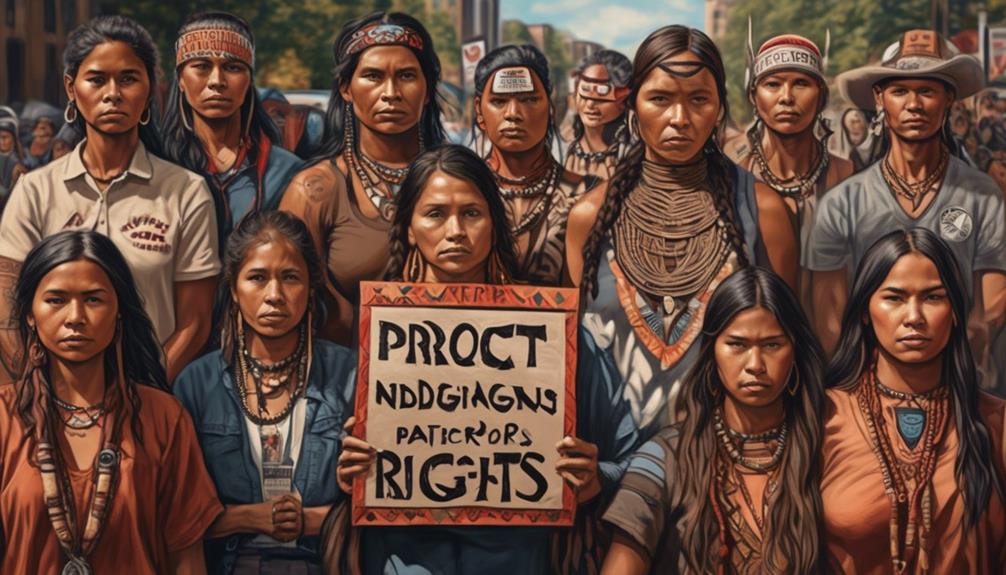
Understanding and advocating for Indigenous rights is crucial for creating a more just and inclusive society. One effective way to advocate for Indigenous rights is through educational outreach. By educating ourselves and others about the historical and ongoing injustices faced by Indigenous communities, we can work towards dismantling harmful stereotypes and promoting accurate representations of Indigenous peoples. This can be done through workshops, seminars, or distributing educational materials that highlight Indigenous perspectives and experiences.
Furthermore, political activism plays a significant role in advocating for Indigenous rights. This includes supporting and participating in Indigenous-led movements, lobbying for policy changes that uphold Indigenous sovereignty and rights, and holding elected officials accountable for their actions or inactions regarding Indigenous issues. Engaging in peaceful protests, signing petitions, and contacting legislators are powerful ways to amplify Indigenous voices and push for meaningful change.
Advocating for Indigenous rights requires ongoing commitment, humility, and a willingness to listen and learn from Indigenous leaders and communities. It's essential to center Indigenous voices and experiences in all advocacy efforts, and to recognize that true allyship involves actively standing in solidarity with Indigenous peoples in their pursuit of justice and equality.
Practicing Cultural Respect and Sensitivity
Practicing cultural respect and sensitivity starts with actively listening to Indigenous voices and learning from their lived experiences. It requires us to approach interactions with cultural humility, acknowledging that our understanding of their traditions and customs may be limited.
To truly honor Indigenous cultures, we must prioritize respecting traditional protocols and practices, recognizing that these are integral to their ways of life and should be upheld.
- Cultural Humility: Understanding that our own cultural perspectives may differ significantly from those of Indigenous peoples, and approaching interactions with a willingness to learn and adapt.
- Recognizing the importance of ongoing self-reflection and critique of our own cultural biases and assumptions, in order to foster genuine understanding and respect.
- Embracing a mindset of lifelong learning, seeking out opportunities to deepen our knowledge of Indigenous cultures and histories from credible Indigenous sources.
Frequently Asked Questions
How Can Non-Indigenous People Support Indigenous Communities in Preserving and Revitalizing Their Languages and Traditional Practices?
We support language preservation by actively listening to Indigenous communities and respecting their linguistic diversity.
Traditional practices revival involves learning from Indigenous elders, sharing their knowledge, and amplifying their voices.
We believe that non-Indigenous people can contribute by advocating for policies that protect and promote Indigenous languages and traditions.
It's essential to recognize the resilience and wisdom of Indigenous communities and be dedicated allies in their efforts for cultural preservation.
What Are Some Specific Ways to Advocate for the Protection of Indigenous Land and Natural Resources?
Advocating for the protection of indigenous land and natural resources involves active participation in environmental stewardship.
We can support indigenous communities in their efforts to preserve their land and resources by amplifying their voices, participating in advocacy campaigns, and promoting sustainable practices.
How Can Allies Address the Issue of Missing and Murdered Indigenous Women and Girls in Their Communities?
Addressing systemic issues and engaging with our community are crucial steps in addressing the issue of missing and murdered Indigenous women and girls.
Supporting grassroots organizations and engaging in advocacy work can help bring attention to this important matter.
What Are Some Examples of Indigenous-Led Initiatives That Non-Indigenous People Can Financially Support or Get Involved With?
We can support initiatives like indigenous language revitalization programs and cultural preservation efforts. These play a crucial role in supporting indigenous education and the preservation of traditional knowledge.
Non-indigenous people can also financially support indigenous-led initiatives that focus on environmental conservation, land preservation, and community development.
It's important to actively seek out and uplift indigenous voices and initiatives, demonstrating our commitment to standing in solidarity with indigenous communities.
How Can Allies Ensure That Their Efforts to Support Indigenous Communities Are Not Tokenistic or Performative?
To avoid tokenism, we prioritize building genuine relationships. It's essential to listen and learn from Indigenous communities, understanding their needs and desires. We strive to center their voices and leadership, offering consistent support and advocacy.
Conclusion
In conclusion, it's vital for us to stand in solidarity with indigenous peoples by understanding their history, listening to their voices, supporting their initiatives, advocating for their rights, and practicing cultural respect.
For example, when I attended a local indigenous-led event, I learned about the importance of traditional land acknowledgments and made a commitment to incorporate them into my daily life.
Let's continue to educate ourselves and be active allies in the fight for indigenous rights.
